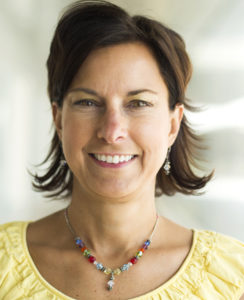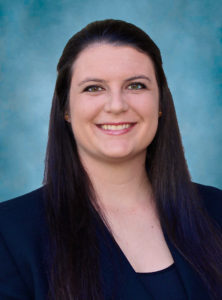Rachel Vitali is a doctoral candidate in the Mechanical Engineering department at the University of Michigan, where she also received her B.S.E. in 2015 and M.S.E in 2017. In addition to incorporating sensor technology into undergraduate courses for engaged learning, her research interests include computational and analytical dynamics with applications to wearable sensing technology for analysis of human motion. In particular, she has been engaged with a research project aimed at understanding, quantifying, and distinguishing performance and technique for a number of different tasks using an array of inertial measurement units. One of her focuses has been developing a method for estimating three-dimensional rotations across a joint using sensors attached to the body segments on either side of that joint. In addition to her research interests, she is also a recipient of the ASME Graduate Teaching Fellowship for the 2018-2019 academic year during which time she will be actively engaged in the instruction for the course.

Dr. Cynthia Cinelli is Associate Professor of Electrical Engineering and Computer Science, Associate Professor of Education, and Director and Graduate Chair for Engineering Education Research Programs at University of Michigan (U-M). Dr. Finelli is a fellow in the American Society of Engineering Education, a Deputy Editor of the Journal for Engineering Education, an Associate Editor of the IEEE Transactions on Education, and past chair of the Educational Research and Methods Division of ASEE. She founded the Center for Research on Learning and Teaching in Engineering at U-M in 2003 and served as its Director for 12 years. Prior to joining U-M, Dr. Finelli was the Richard L. Terrell Professor of Excellence in Teaching, founding director of the Center for Excellence in Teaching and Learning, and associate professor of electrical engineering at Kettering University.
Dr. Finelli’s current research interests include student resistance to active learning, faculty adoption of evidence-based teaching practices, the use of technology and innovative pedagogies on student learning and success, and the impact of a flexible classroom space on faculty teaching and student learning. She also led a project to develop a taxonomy for the field of engineering education research, and she was part of a team that studied ethical decision-making in engineering students.
Dr. Noel Perkins is the Donald T. Greenwood Collegiate Professor of Engineering and an Arthur F. Thurnau Professor in Mechanical Engineering at the University of Michigan where he has been a member of the faculty since 1987. He earned his PhD at U. C. Berkeley in 1986 (Mechanical Engineering) prior to completing a year of postdoctoral studies at the Sound and Vibration Institute (University of Southampton) in England. His research interests draw from the fields of computational and nonlinear dynamics with applications to wireless inertial sensors for human motion analysis, the mechanics of single molecule DNA and DNA/protein complexes, and structural dynamics. His research program has been supported by numerous contracts, grants and awards from industry, government agencies, foundations and universities
Dr. Perkins is a past Editor of the ASME Journal of Vibration and Acoustics and serves or has served in editorial capacities for Sensors, ASME Journal of Applied Mechanics, Journal of Vibration and Control, Sports Engineering, International Journal of Non-linear Mechanics, and Journal of Sound and Vibration. He is a Fellow of the American Society of Mechanical Engineers, a recipient of the ASME Leonardo diVinci Award, the ASME N. O. Myklestad Award, the General Motors Outstanding Distance Learning Faculty Award, the Academic Challenge Award from the Technical University of Munich, the Amoco Undergraduate Teaching Award, and several other teaching awards from the University of Michigan. He is also co-founder of Cast Analysis LLC, a company that produces a sensor technology to teach fly casting for the sport of fly fishing.


